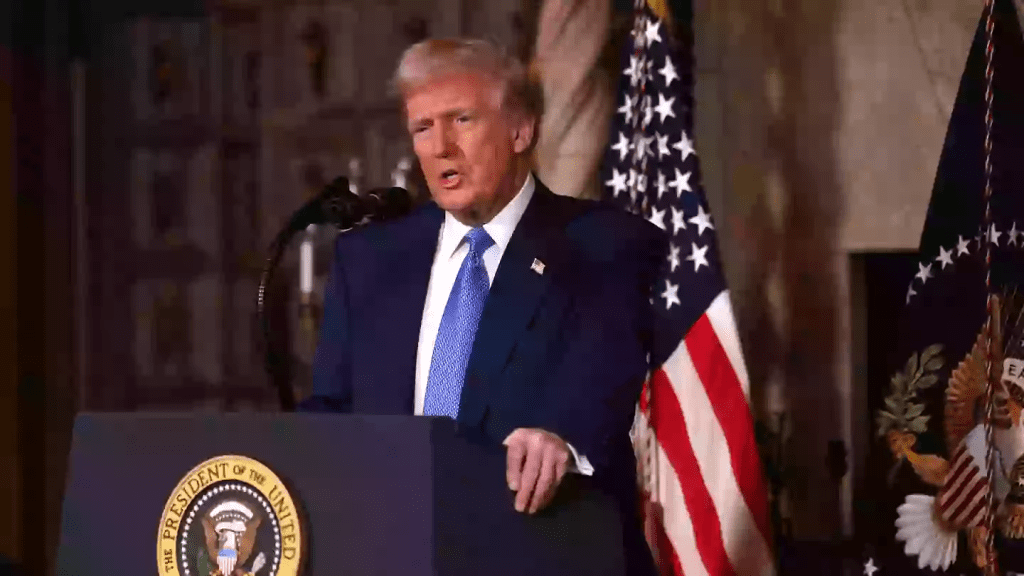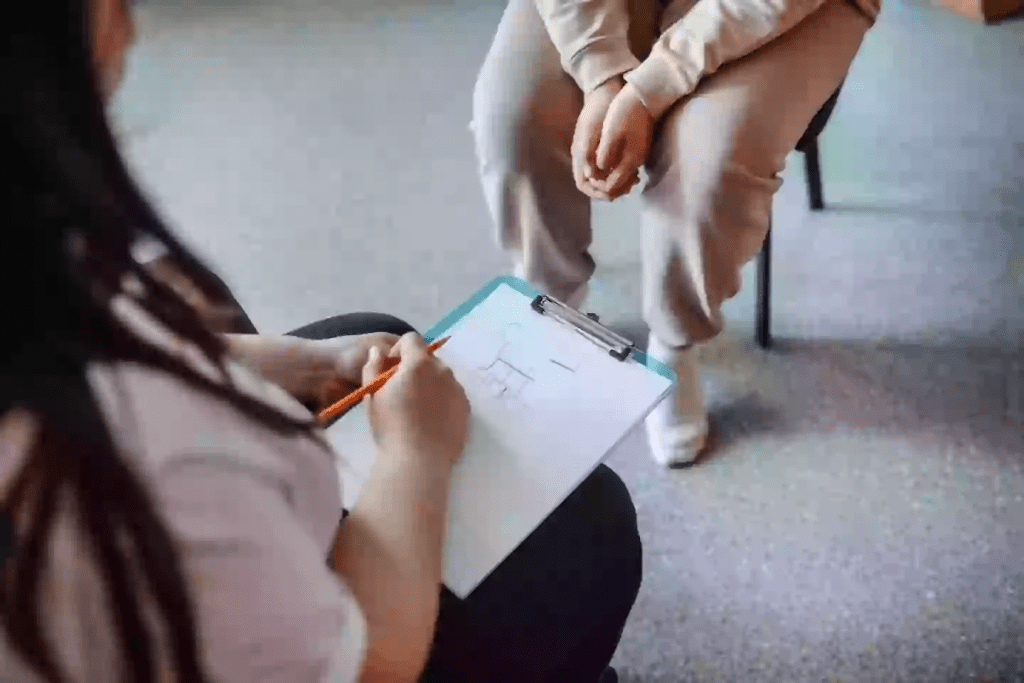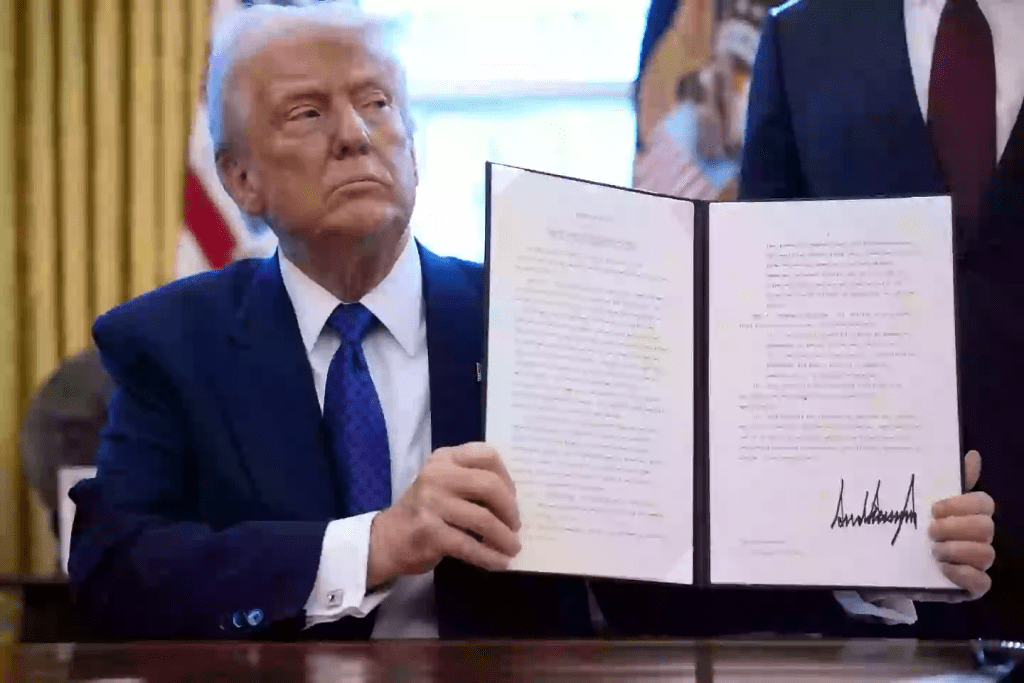Former U.S. President Donald Trump has ignited controversy once again, this time setting his sights on psychiatric medications prescribed to children. In a move that has drawn backlash from healthcare professionals, Trump’s latest executive order calls for a reassessment of commonly prescribed mental health drugs, including antidepressants, antipsychotics, stimulants, and weight-loss medications.
The order introduces the “Make America Healthy Again Commission,” which will be chaired by Robert F. Kennedy Jr., the U.S. Health and Human Services Secretary. The commission’s primary focus? Examining the role of psychiatric medications in children’s health and assessing their potential overuse.
While some support the effort to evaluate prescription practices, many doctors and mental health advocates fear this could lead to reduced access to life-saving medications for children struggling with mental health disorders. Let’s break down what this executive order entails and why it has sparked major concern.

Trump’s Executive Order on Children’s Health: What It Proposes
The executive order lays out a broad plan to “drastically lower chronic disease rates” in American children. At its core, the order:
- Calls for a reassessment of the prevalence and impact of psychiatric medications on children, including SSRIs (Selective Serotonin Reuptake Inhibitors), antipsychotics, mood stabilizers, and stimulants.
- Questions the potential over-utilization of medication and its long-term effects on child development.
- Focuses on identifying “certain chemicals and exposures” that may contribute to chronic illnesses.
- Requires an initial report within 100 days and a detailed strategy within 180 days to improve children’s overall health.
On the surface, this initiative appears to advocate for better health practices for children. However, the specific focus on mental health medications has raised alarms among experts in the field.
Why Are Healthcare Professionals Concerned?
Mental health specialists, pediatricians, and advocacy groups have expressed deep concern over how this policy could affect children who rely on these medications.
1. Risk of Reduced Access to Critical Medications
Millions of children and teenagers in the U.S. depend on psychiatric medications to manage conditions such as depression, anxiety, ADHD, and bipolar disorder. These medications are often prescribed only after careful evaluation by medical professionals.
- ADHD affects over 8.4 million children, many of whom rely on stimulants to function in school and daily life.
- SSRIs and mood stabilizers help children manage severe depression and anxiety disorders, preventing self-harm and suicidal thoughts.
Many doctors fear that increased government scrutiny could make it harder for children to access these essential treatments—potentially worsening mental health crises nationwide.

2. The Danger of Untreated Mental Illness
Without proper treatment, mental health conditions can worsen over time, leading to academic struggles, social withdrawal, and even increased suicide risks among young people.
Dr. Lelach Rave, the interim executive director of the Washington Chapter of the American Academy of Pediatrics, explained the potential harm of discouraging mental health treatment:
“Any parent who has a child struggling with depression, anxiety, or psychosis knows how frightening it is. There’s a lot of harm that comes with untreated illness.”
She acknowledged that medications do have risks, but emphasized that the greater risk lies in leaving mental illness untreated.
3. Stigmatizing Mental Health Treatment
Mental health advocates argue that this policy could further stigmatize the use of psychiatric medication—reinforcing the idea that mental health conditions don’t deserve the same medical attention as physical illnesses.
Summer Starr, the interim director of Washington’s National Alliance on Mental Illness (NAMI), criticized the double standard in healthcare:
“You’d never deny someone cancer treatment. We’re trying to destigmatize mental health, and this just adds another layer of stigma.”
Mental health conditions, just like physical illnesses, require proper treatment, early intervention, and long-term care. Advocates fear that making psychiatric medication a political issue could discourage families from seeking help for their children.

The Political Motivations Behind the Executive Order
Trump’s executive order has sparked debate over whether it’s truly about children’s health or if it’s a political move aimed at appealing to certain voter demographics.
- The focus on “over-medication” and “chemical exposure” aligns with concerns often raised by anti-pharmaceutical and wellness-focused communities.
- Robert F. Kennedy Jr., the chair of the new commission, has been known for his controversial views on medical regulations—leading some to believe that this policy could further restrict access to essential medications.
- Critics argue that the order lacks input from licensed psychiatrists and mental health professionals, raising doubts about its scientific foundation.
While evaluating prescription practices is an important discussion, experts argue that broad, sweeping federal orders aren’t the right approach—especially when they could undermine legitimate medical care.
What Happens Next? The Potential Consequences of the Policy
With the commission set to release an initial report within 100 days, medical professionals and advocacy groups are bracing for potential policy changes that could limit access to psychiatric medications.
Possible Outcomes Include:
- Stricter regulations on prescribing psychiatric medications—which could delay or complicate treatment for children in need.
- Increased scrutiny on doctors who prescribe these medications, leading to potential hesitation in prescribing necessary treatments.
- Potential insurance and healthcare restrictions that make it harder for families to afford psychiatric care.
Many organizations, including NAMI, the American Academy of Pediatrics, and mental health advocacy groups, are expected to push back against the policy, urging the administration to consider the medical evidence before making drastic changes.
Final Thoughts: A Policy That Raises More Questions Than Solutions
Trump’s executive order on psychiatric medication has ignited a fierce debate between those advocating for better health practices and those fearing it could jeopardize children’s mental health treatment.
While evaluating medication use is important, vilifying psychiatric drugs without considering their life-saving impact could lead to serious consequences for millions of children.
Healthcare professionals are urging policymakers to base decisions on science, not politics, and ensure that children who need mental health support continue to receive it without unnecessary barriers.
The coming months will be crucial in determining whether this policy improves children’s health—or creates new obstacles for those who need help the most.